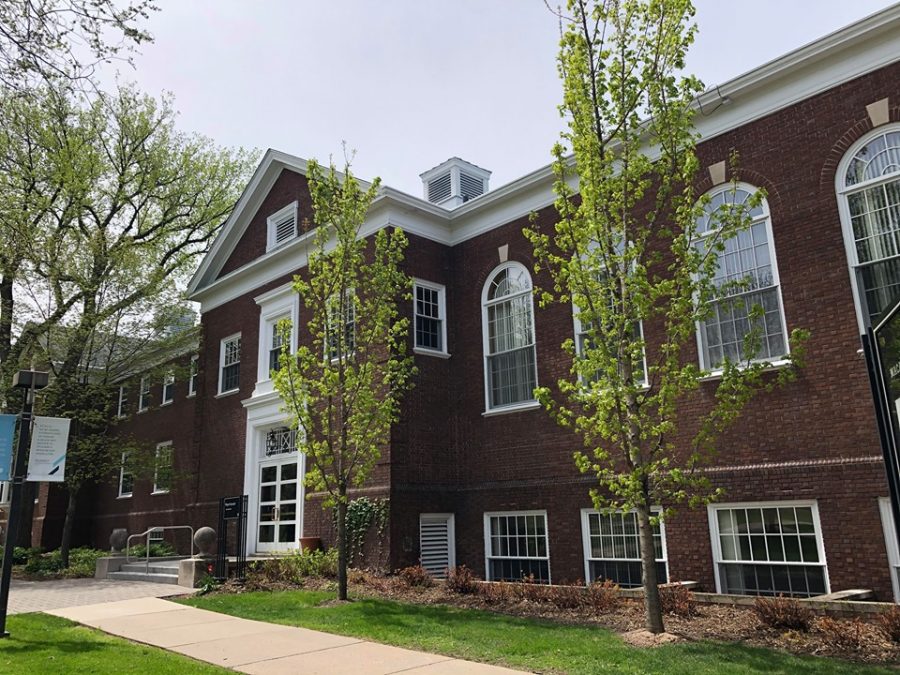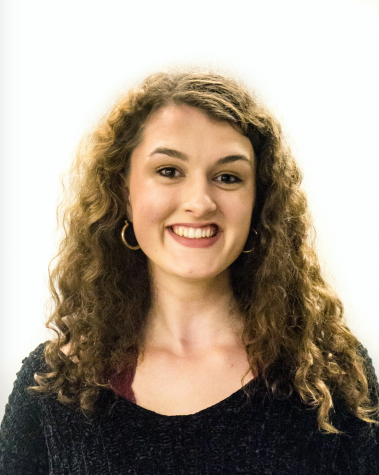Macalester considers six scenarios for the academic year in anticipation of fall 2020
May 4, 2020
Over the last week, Macalester senior staff put together six scenarios to structure the 2020-2021 school year in the face of the COVID-19 pandemic. Each scenario aims to ensure the college can provide as much in-person instruction as possible.
On Tuesday, April 28, at a weekly department chair meeting, Vice Provost and Assistant Dean of the Faculty Paul Overvoorde walked all of the department chairs through the different scenarios.
Overvoorde then asked the chairs to share the scenarios with the faculty in their departments and fill out a Google Form with their feedback by noon on Thursday, April 30.
From a document provided to The Mac Weekly, the scenarios are as follows:
Scenario 1: The semester will take place in-person and on-campus, starting in September and ending in December. Students take four courses; faculty teaching either two or three.
Scenario 2: The fall 2020 semester is delayed between two weeks and two months. Students take four courses; faculty teaching either two or three.
Scenario 3: The first semester starts January 2021 — the second semester ends in mid-August. Students take four courses, faculty teaching either two or three.
Scenario 4: The semester is structured into four, 3.5-week “blocks.” Students take one course per block; faculty teach one course per block. Colorado College uses a similar model year after year.
Scenario 5: The fall 2020 semester is divided into two halves. Students take two courses at a time; faculty teach one or two courses per half. Beloit College in Beloit, Wis. has already announced that it will pursue this model, structuring each term into two halves consisting of two courses.
Scenario 6: The 2020-2021 academic year is broken into three segments of ten weeks. The first segment starts later in the fall and wraps up before Thanksgiving. Students take two or three classes per segment.
On Thursday, April 30, President Brian Rosenberg led a meeting for faculty and staff to inform them of the college’s plans for next year.
He said that the college should make a decision about which scenario to adopt by mid-July. The date is mindful of the July 1 deadline for students to defer for the upcoming year. Students may request a leave of absence at any time.
The mid-July date might bring slight surprise, given that on April 16, Rosenberg and Provost Karine Moe sent an official email to all students, staff and faculty indicating that they hoped to “make decisions about the 2020-2021 academic year by June 1.”
In a meeting transcript provided to The Mac Weekly, Rosenberg said he also “acknowledges that that could change depending on what happens with public health or with state requirements.”
At the moment, Vice President of Administration and Finance David Wheaton and Overvoorde are focusing more narrowly on three of these scenarios — opening the campus from September to December, closing campus for half of one semester (depending on when the virus surges), and opening the campus for just one of the two semesters next year.
“The second scenario essentially says, what if we just need to have part of one of the semesters be a little like what we did this spring,” Wheaton said. “Not sure which part this would be: it might be in the fall, it might be we just wait.
“The third version is that it doesn’t settle down enough for us to have any in-person instruction in the fall semester, but we’ll have it in the spring,” Wheaton continued.
In drafting these scenarios, Overvoorde and Wheaton relied on information from the Minnesota Department of Health and several sources at the federal level, including the White House coronavirus task force led by Dr. Anthony Fauci.
“What we want to do now is say, ‘Okay, if we have A, B and C choices, what are [their] implications?’” Wheaton said. “That requires reaching out more broadly into the community to say how we would respond to each of these.”
Wheaton said that the next step is going through the three narrowed-down scenarios and deciding how the college could adapt curriculum, technology, housing and basic interactions on campus.
The Education Policy and Governance (EPAG) committee met on Thursday after receiving feedback from faculty via Google Forms and began to discuss next steps. EPAG will continue to meet weekly to help the administration with fall planning.
“We do not plan to issue a recommendation of one plan to the administration,” EPAG Chair and geography professor Eric Carter wrote in an email to The Mac Weekly. “Rather, we are weighing the pros and cons of different plans, from a curricular perspective, to give the best guidance possible to the senior staff, who will be responsible for making a decision when the time comes.”
Many faculty members have modified their classes because of having to teach remotely, and recognize some of the challenges that accompany not teaching in a traditional classroom. Professor Arjun Guneratne, a member of EPAG, is currently wrapping up his Ethnographic Interviewing and Cultural Anthropology classes.
“My personal view is the college needs to be as flexible as it can in thinking about next year so that if we do have to close the college again, we would be able to do that with the least amount of disruption,” Guneratne continued. “Whatever it is, we should know fairly early… so there are no surprises.”
Chair of political science Paul Dosh spoke to political science faculty members about adjusting their classes after attending Overvoorde’s meeting on Tuesday.
“To me, [the Google Form] wasn’t asking ‘You as a faculty member, which would you prefer?’” Dosh said. “Rather, it was saying, ‘Each of these has tremendously complicated implications across campus, help us identify what the pros and cons of each scenario might be.’”
The way the next year is structured could have a major financial impact — including for faculty and staff.
“If by starting in January we preserve the full year of on-campus experience, we had a full year of room and board for students, we have fewer students who took leaves of absence, then I would anticipate that it would be easier for us to have a more robust compensation budget, because we have more robust revenue,” Rosenberg said at the Thursday meeting.















Doris Jean Ann Heroff • May 6, 2020 at 8:45 am
This comprehensive article gives us an appreciation of the complexity of the issues while describing the invitation to the faculty to consider the benefits and challenges. Well done, Margaret Moran.